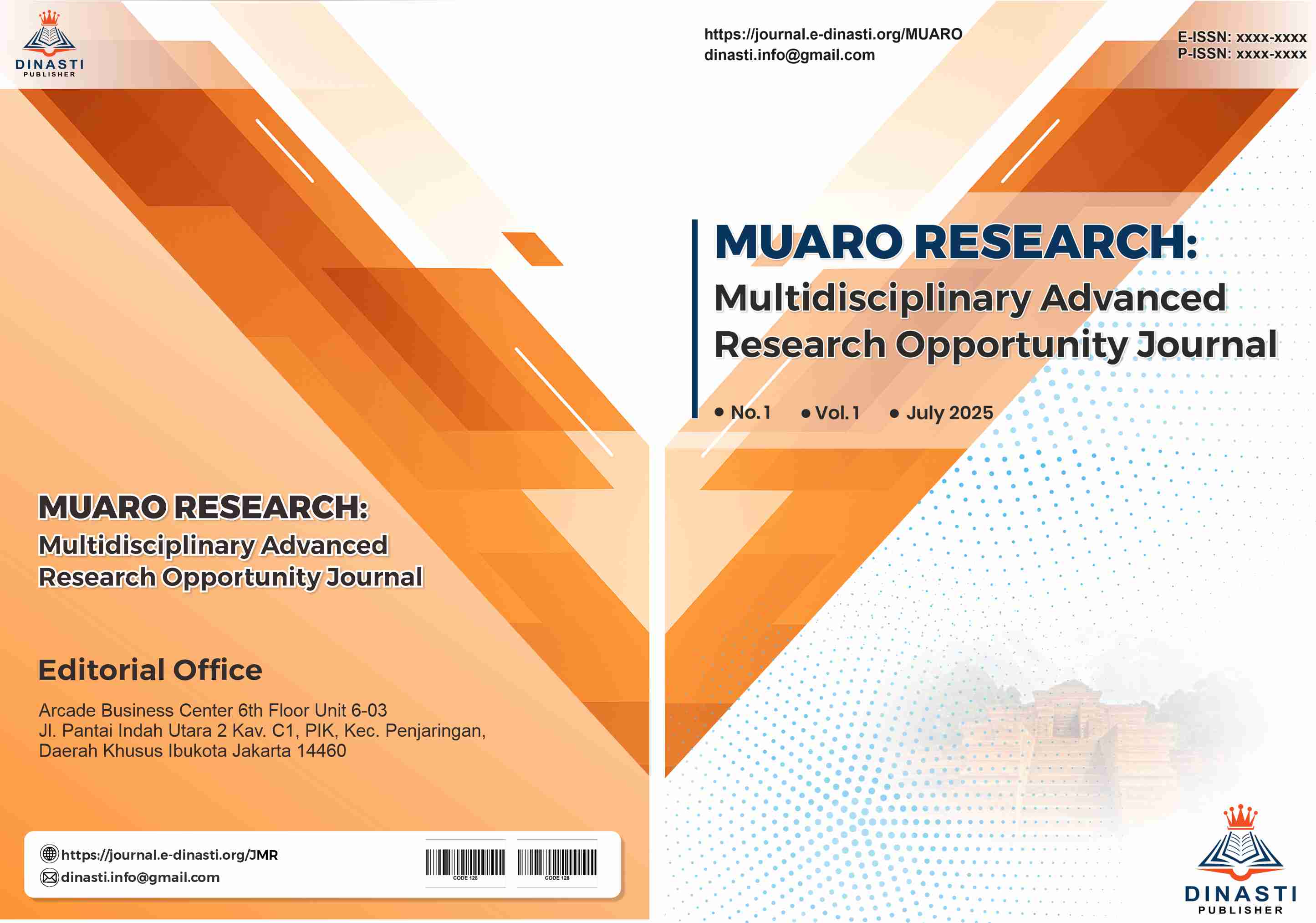The Role of Social Organization in Community Economic Empowerment
Keywords:
Social organizations, community empowerment, economic development, social capital, sustainable developmentAbstract
Social organizations play a significant role in fostering community economic empowerment by acting as a bridge between local communities, government agencies, and private sectors. These organizations function as catalysts for change through capacity-building programs, skill development initiatives, microfinance access, and community-based entrepreneurship projects. By promoting collective action and local participation, social organizations help strengthen social capital and enhance economic resilience. Their activities not only improve income levels but also foster sustainable development by encouraging self-reliance and reducing dependence on external aid. Furthermore, social organizations are instrumental in addressing socio-economic disparities by targeting marginalized groups, promoting gender equality, and facilitating inclusive economic growth. In the era of globalization and rapid technological advancement, the role of social organizations is becoming increasingly relevant, particularly in adapting local communities to changing economic landscapes. This study aims to analyze the strategic role, challenges, and opportunities of social organizations in driving community-based economic empowerment.
References
Chambers, R. (1994). Participatory Rural Appraisal (PRA): Analysis Of Experience. World Development, 22(9), 1253–1268.
Cornwall, A., & Brock, K. (2005). What Do Buzzwords Do For Development Policy? Third World Quarterly, 26(7), 1043–1060.
Edwards, M., & Hulme, D. (1996). Ngos, States And Donors: Too Close For Comfort? Macmillan Press.
Prayetno, S., & Ali, H. (2020). Entrepreneurial Supply Chain Management Competence: Predictors Of Work Motivation Advocate. International Journal Of Supply Chain Management, 9(3), 444-454.
Eversole, R. (2010). Remaking Participation: Challenges For Community Development Practice. Community Development Journal, 45(3), 276–288.
Fisher, J. (1998). Non Governments: Ngos And The Political Development Of The Third World. Kumarian Press.
Wijaksono, D., & Ali, H. (2019). Model Repurchase Intentions: Analysis Of Brand Awareness, Perceived Quality, Brand Association, And Brand Loyalty (Case Study Private Label On Store Alfamidi In Tangerang). Saudi Journal Of Humanities And Social Sciences, 4(5), 371-380.
Ndraha, H. E. M., & Ali, H. (2020). The Implementation Quality Of Corporate Governance With Corporate Values: Earning Quality, Investment Opportunity Set, And Ownership Concentration Analysis. Talent Development & Excellence, 12(2).
Fowler, A. (2000). Ngdos As A Moment In History: Beyond Aid To Social Entrepreneurship Or Civic Innovation? Third World Quarterly, 21(4), 637–654.
Kabeer, N. (2005). Gender Equality And Women’s Empowerment: A Critical Analysis Of The Third Millennium Development Goal. Gender & Development, 13(1), 13–24.
Lewis, D., & Kanji, N. (2009). Non-Governmental Organizations And Development. Routledge.
Desfiandi, A., Yusendra, M. A. E., Paramitasari, N., & Ali, H. (2019). Supply Chain Strategy Development For Business And Technological Institution In Developing Start-Up Based On Creative Economy. Int. J. Supply Chain Manag, 8(6), 646-654.
Sulistiorini, M. S., & Ali, H. (2017). Customer Satisfaction Model: Product Analysis, Price, Promotion And Distribution (Case Study At PT Integrasia Utama). International Journal Of Applied Business And Economic Research.
Mansuri, G., & Rao, V. (2013). Localizing Development: Does Participation Work? World Bank.
Molyneux, M. (2002). Gender And The Silences Of Social Capital: Lessons From Latin America. Development And Change, 33(2), 167–188.
Putnam, R. D. (2000). Bowling Alone: The Collapse And Revival Of American Community. Simon & Schuster.
Rahman, M. A., & Fals-Borda, O. (1991). A Self-Review Of Participatory Action Research. In Action And Knowledge. Apex Press.
Sen, A. (1999). Development As Freedom. Oxford University Press.
Smith, M. K. (2001). Community. The Encyclopaedia Of Informal Education.
Uphoff, N. (1996). Learning From Gal Oya: Possibilities For Participatory Development And Post-Newtonian Social Science. Cornell University Press.
World Bank. (2015). Empowering Women And Girls For Shared Prosperity. World Bank Group.
Yunus, M. (2007). Creating A World Without Poverty: Social Business And The Future Of Capitalism. Publicaffairs.
Zaki, M., & Mckechnie, S. (2019). Technology And Social Impact: Leveraging Digital Tools For Development. Journal Of Social Innovation, 12(4), 45–61.
Zohir, S. C., & Matin, I. (2004). Wider Impacts Of Microfinance Institutions: Issues And Concepts. Journal Of International Development, 16(3), 301–330.
United Nations Development Programme (UNDP). (2020). Human Development Report. UNDP.
Downloads
Published
Issue
Section
License
Copyright (c) 2025 Safira Ramadhanitya, Hapzi Ali (Author)

This work is licensed under a Creative Commons Attribution 4.0 International License.
Copyright :
Authors who publish their manuscripts in this journal agree to the following conditions:
- Copyright in each article belongs to the author.
- The author acknowledges that the JMR has the right to be the first to publish under a Creative Commons Attribution 4.0 International license (Attribution 4.0 International CC BY 4.0).
- Authors can submit articles separately, arrange the non-exclusive distribution of manuscripts that have been published in this journal to other versions (for example, sent to the author's institutional repository, publication in a book, etc.), by acknowledging that the manuscript has been published for the first time at JMR.











